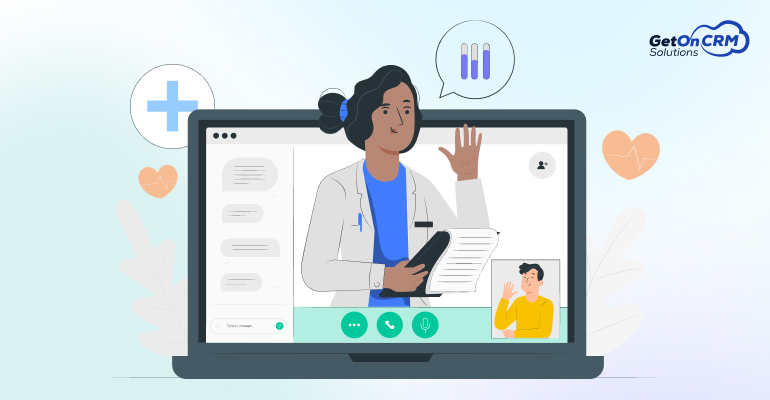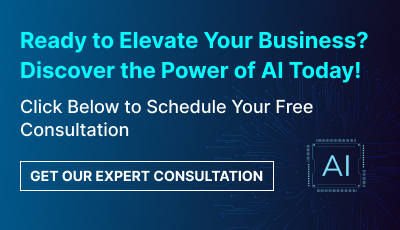
Utilizing Healthcare Marketing Automation For Enhanced Patient Experience
- January 12, 2024
- 9 minutes
- 1225
|
GetOnCRM Solutions
Getting your Trinity Audio player ready...
|
In the rapidly evolving landscape of healthcare, the integration of marketing automation has emerged as a pivotal strategy for enhancing patient experience. At its core, healthcare marketing automation leverages advanced technology to streamline communication, personalize patient interactions, and optimize healthcare services. This article delves into the multifaceted role of marketing automation in healthcare, underscoring its significance in fostering a patient-centric approach that not only meets but exceeds patient expectations.
Understanding Healthcare Marketing Automation
Healthcare marketing automation refers to the use of software and technology to automate marketing tasks and processes in the healthcare sector. It includes patient communication, appointment scheduling, feedback collection, and personalized healthcare marketing campaigns. The scope of marketing automation extends beyond mere efficiency; it encompasses a strategic approach to patient engagement, retention, and satisfaction.
Historical Evolution and Current Trends
The concept of marketing automation in healthcare is not new, but technological advancements have significantly influenced its evolution. Initially focused on basic tasks like appointment reminders, the field has now expanded to include sophisticated AI-driven patient engagement tools. Current trends highlight the growing importance of data analytics, personalized content, and integrated patient care models.
Key Components
Key components of healthcare marketing automation include:
- Automated communication channels (e.g., email, SMS, social media)
- Patient segmentation and targeting
- Data analytics for personalized care plans
- AI and machine learning for predictive healthcare insights
The Role of Technology in Patient-Centric Healthcare
Integration of AI and Machine Learning
Artificial Intelligence (AI) and machine learning are revolutionizing healthcare marketing by enabling more personalized and predictive patient care. AI algorithms can analyze patient data to identify health trends, predict patient needs, and tailor communication strategies accordingly.
Impact of Data Analytics on Patient Targeting and Segmentation
Data analytics plays a crucial role in understanding patient behaviors, preferences, and needs. By segmenting patients based on various criteria such as demographics, health conditions, and past interactions, healthcare providers can deliver more targeted and relevant information.
Strategies for Enhancing Patient Experience through Automation
Personalized Patient Communication
Personalization is at the heart of enhancing patient experience. Marketing automation enables healthcare providers to send tailored messages based on individual patient histories and preferences. It could range from personalized health tips to reminders for medication and check-ups, fostering a sense of care and attention.
Automated Patient Journey Mapping
Understanding and automating the patient journey is crucial for effective healthcare delivery. Marketing automation tools can track a patient’s journey from initial contact through ongoing care, identifying key touchpoints for engagement and support. It ensures that patients receive timely and relevant information at each stage of their healthcare journey.
Digital Patient Engagement Tools and Techniques
Digital tools such as patient portals, mobile apps, and online forums have become instrumental in patient engagement. These platforms not only provide patients with easy access to health information and services but also allow for continuous interaction with healthcare providers, enhancing the overall patient experience.
Marketing Automation Tools and Platforms
Overview of Popular Healthcare Marketing Automation Tools
Several tools have become popular in healthcare marketing automation, each with unique features. For example, HubSpot offers comprehensive inbound marketing tools, while Salesforce Health Cloud provides a patient-centric CRM system. Other notable tools include Marketo, Eloqua, and ActiveCampaign, each offering various functionalities tailored to healthcare marketing needs.
Features and Benefits of Each Tool
Each tool offers specific features such as email marketing, social media integration, analytics, and patient segmentation. The benefits of these tools include improved patient engagement, efficient communication, and data-driven insights for personalized care.
Choosing the Right Platform for Your Healthcare Practice
When selecting the ideal marketing automation platform for a healthcare practice, it’s crucial to consider specific needs, scalability, and the expertise available for implementation and management. Salesforce stands out as a notable platform in this domain, offering a comprehensive patient-centric CRM system through Salesforce Health Cloud. This platform is designed to cater to the intricate needs of healthcare providers, offering features like patient management, personalized communication, and data analytics.
However, the effectiveness of Salesforce as a marketing automation tool significantly depends on its proper implementation and customization to fit the unique requirements of a healthcare practice. That is where expertise from implementation specialists becomes invaluable.
GetOnCRM Solutions, known for its proficiency in Salesforce consulting & implementations, emerges as a key player in this field. As Salesforce implementation experts, GetOnCRM Solutions offers tailored services to ensure that healthcare providers can leverage the full potential of Salesforce, aligning it seamlessly with their operational workflows and patient engagement strategies.
Our customer success story: Pardot Implementation for Pharmaceutical Company
Overcoming Challenges in Implementing Marketing Automation
Addressing Privacy and Security Concerns
One of the primary challenges in implementing marketing automation in healthcare is ensuring patient data privacy and security. Compliance with regulations such as HIPAA in the United States is crucial. Healthcare providers must ensure that their marketing automation tools are compliant and that patient data is securely handled.
Managing the Transition to Automated Systems
Transitioning to an automated system can be challenging, especially for staff accustomed to traditional methods. It involves not only technical implementation but also a cultural shift within the organization. Effective training and change management strategies are essential for a smooth transition.
Training Staff and Maintaining Human Touch
While automation brings efficiency, maintaining a human touch in patient interactions is vital. Training staff to use automation tools effectively while emphasizing the importance of empathy and personal interaction in patient care is key to balancing technology and the human touch.
Measuring the Impact of Marketing Automation on Patient Experience
Key Performance Indicators (KPIs) and Metrics
To evaluate the effectiveness of marketing automation in healthcare, it’s essential to track specific KPIs. These may include patient engagement rates, appointment adherence, patient satisfaction scores, and the efficiency of communication channels. Regularly monitoring these metrics provides insights into the success of automation strategies and areas for improvement.
Gathering and Analyzing Patient Feedback
Patient feedback is a valuable source of information for assessing the impact of marketing automation. Surveys, feedback forms, and direct patient interviews can reveal patients’ perceptions and experiences. Analyzing this feedback helps in fine-tuning automation strategies to better meet patient needs.
Continuous Improvement Based on Data Insights
The ultimate goal of implementing marketing automation is continuous improvement in patient care and experience. By leveraging data insights from various metrics and feedback, healthcare providers can make informed decisions to enhance their services, tailor communication, and improve overall patient satisfaction.
Also Read: How Can Healthcare Providers Bridge The Gap Between Automation Adoption And Strategic Planning
Future Trends in Healthcare Marketing Automation
Predictions for the Future of Automation in Healthcare
The future of healthcare marketing automation is likely to be shaped by advancements in AI, machine learning, and data analytics. Predictive analytics, personalized medicine, and virtual health assistants are some of the trends that are expected to gain prominence.
Emerging Technologies and Their Potential Impact
Emerging technologies like blockchain for secure patient data management augmented reality for patient education, and IoT for remote patient monitoring is set to transform healthcare marketing. These technologies promise to personalize patient care further and streamline healthcare delivery.
Preparing for the Future: Steps for Healthcare Providers
To stay ahead, healthcare providers must be proactive in adopting new technologies and strategies. It includes investing in the latest tools, training staff, and staying informed about regulatory changes and technological advancements. Embracing innovation will be key to delivering superior patient experiences in the future.
Case Studies: Success Stories in Healthcare Marketing Automation
GE Healthcare and Marketo Engage: Revolutionizing Digital Marketing
- Background: GE Healthcare, a leading global medical technology and digital solutions innovator, faced challenges in streamlining its digital marketing efforts.
- Strategy: The company implemented Marketo Engage to optimize content streams and create digital and revenue marketing centers of excellence.
- Outcome: This strategic move drove over $1 billion in the pipeline, significantly elevating the role of marketing in the early stages of the buying cycle. The case study highlights the power of effective digital marketing tools in generating substantial business outcomes in the healthcare sector.
Salesforce Implementation in Clinical Trial Management
- Background: The need for efficient clinical trial management is critical in healthcare. Traditional methods often lead to delays and inefficiencies.
- Strategy: A cloud-based clinical trial management platform was built using Salesforce, aiming to quicken recruitment, improve patient experience, and streamline processes.
- Outcome: The Salesforce-based solution provided a single platform for managing clinical trials, enhancing patient engagement, and improving overall trial efficiency. This case study demonstrates the versatility of Salesforce in addressing complex healthcare needs.
Personalized Patient Engagement: A Hospital’s Journey with Automation
- Background: A mid-sized hospital struggled with patient engagement and communication inefficiencies.
- Strategy: The hospital adopted a healthcare marketing automation tool to personalize patient communication, automate appointment reminders, and provide tailored health information.
- Outcome: The result was a significant increase in patient satisfaction scores, reduced no-show rates for appointments, and an enhanced reputation in the community. This case study exemplifies the impact of personalized communication in healthcare settings.
Leveraging Data Analytics for Targeted Patient Care
- Background: A healthcare provider network sought to improve its patient targeting and segmentation.
- Strategy: By implementing a marketing automation tool with advanced data analytics capabilities, the network was able to analyze patient data for better targeting and personalized care plans.
- Outcome: The network saw improved patient engagement, higher adherence to treatment plans, and increased patient retention. This case study underscores the importance of data-driven strategies in healthcare marketing.
Enhancing Online Patient Portals through Automation
-
- Background: An online patient portal was underutilized and lacked engagement.
- Strategy: The healthcare provider enhanced the portal with automated features like personalized health tips, appointment scheduling, and interactive health trackers.
- Outcome: Patient usage of the portal increased significantly, leading to better health outcomes and more efficient patient-provider communication. This case study shows the potential of digital tools in patient engagement.
Conclusion
The exploration of healthcare marketing automation in this article highlights its crucial role in enhancing patient experience. Tools like Salesforce, implemented by experts such as GetOnCRM Solutions, demonstrate that automation goes beyond efficiency, offering personalized care and deeper patient engagement. Success stories from various healthcare organizations reinforce this, showing tangible improvements in patient interaction and care outcomes.
Looking ahead, the field of healthcare marketing automation is poised for further evolution, driven by advancements in technology. Healthcare providers must stay adaptable, embracing new tools and strategies to maintain a patient-centric approach.







